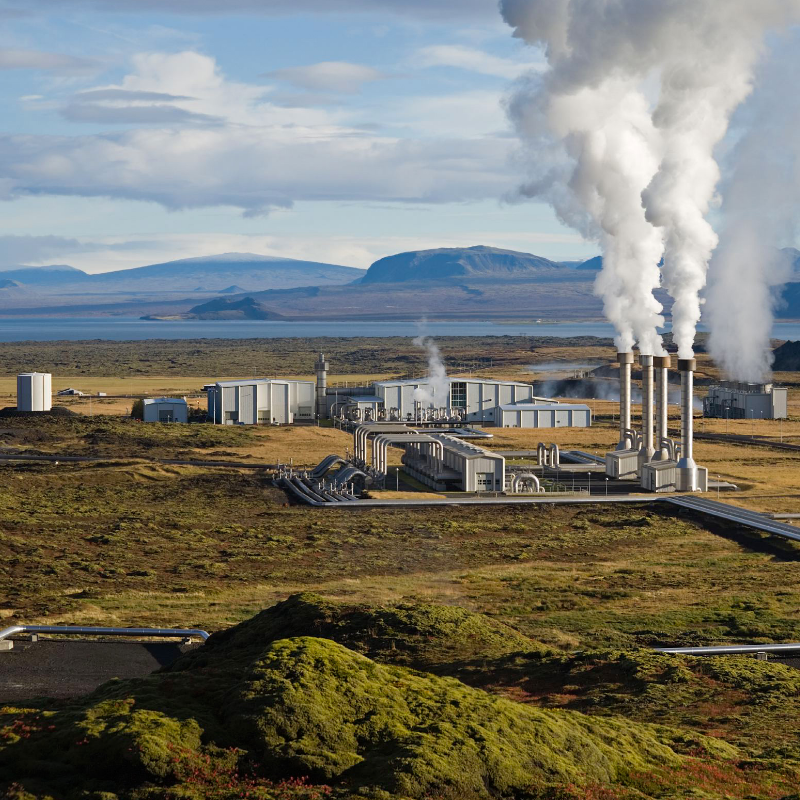Iceland is living in our future


I spent the first half of this week reporting in Iceland, and I came away convinced that the country provides a window into our collective future in at least three important ways.

We could at least be headed in the same direction.


A geothermal power plant near Reykjavik, Iceland.
Arni Saeberg/Climeworks, via Associated Press
Iceland uses remarkably few fossil fuels to power its economy and heat its homes. Instead, 85 percent of the country’s energy comes from domestically produced renewables, primarily geothermal power and hydropower .
Iceland can claim such a high percentage of renewables, the most of any country in the world, thanks to its unique geology. Its land sits atop an incredibly active volcanic zone, and six major geothermal plants tap that subterranean warmth to provide heating for almost all the country’s homes.
Drive around the countryside, and you can’t miss steam billowing from the ground between the majestic fjords. Just this morning, an active volcano began erupting in a town I visited only a few days ago.
Geothermal power also produces about 20 percent of the country’s electricity, with the remainder coming from a robust network of hydroelectric plants. The oil that Iceland does burn is primarily used to power cars and trucks, as well as the boats that comprise the country’s large fishing fleet.
Iceland a small and wealthy country that is unique, to say the least, in having such abundant geothermal and hydroelectric resources. But as we’ve recently reported, new advances gleaned from the oil and gas business are making geothermal feasible in new locales . And as solar and wind power continue to expand at a rapid clip, it may not be long before more countries are powering their economies not with fossil fuels but with local, clean renewable energy.
Melting glaciers and fewer fish
While Iceland is not a major emitter of planet-warming emissions, the effects of climate change are already transforming its landscape and economy.
One of its glaciers, Okjokull, has completely melted away . Over the next 200 years, scientists expect the rest — including the massive Vatnajokull glacier, which covers some 3,000 square miles — to disappear as well.
As major glaciers melt, some research suggests their shifting weight could trigger more volcanic and seismic activity. Already, subterranean tremors are damaging some towns’ pipes and triggering flash floods .
Warmer weather is also affecting plants and animals. Iceland’s native plants are at risk of extinction as temperatures rise and invasive species arrive. One of the country’s most important fish, the capelin, has occasionally vanished as waters around the country warmed. And like all coastal cities around the world, Iceland’s capital, Reykjavik, is threatened by rising sea levels.
Some of the climate disruptions faced by Iceland will be unique, given its remote locale and distinct geology and biodiversity. But as we’ve seen this week in Chile, California and beyond , the rapidly warming planet will have profound effects on every corner of the Earth.
“Climate change is no longer something to be joked about in Iceland or anywhere,” Gudni Johannesson, Iceland’s president, told my colleague Liz Alderman in 2019 .
Capturing carbon
There’s still plenty of pollution coming from Iceland. Its booming tourism business creates substantial emissions through air travel. In fishing, another important industry, the over-harvesting of natural stocks and the rise of open-water salmon farming are creating environmental hazards. And heavy industry, including aluminum production, remains a big emitter of greenhouse gases.
That’s all the more reason Icelanders are enthusiastic about a small but growing business that has an early foothold in the country: carbon capture. A local company, Carbfix, is a leader in the difficult work of taking captured carbon dioxide and sequestering it underground . And Climeworks, a Swiss company that is a leader in pulling carbon dioxide directly from the air, has set up its two largest facilities in Iceland, drawn by the promise of cheap, clean geothermal power, and a well-suited partner in Carbfix.
Both companies are just getting started. But in the years ahead, carbon removal and storage are expected to become enormous businesses, with similar facilities cropping up around the globe.






Okay... so they also have the occasional volcanic eruption... Nothing is perfect.
Not fond of their politics. I'll stay in Kansas (a free state).
Geothermal is a great technology but not without it drawbacks. For example, open loop systems emit hydrogen sulfide, carbon dioxide, ammonia and methane into the air. The hydrogen sulfide turns into sulfur dioxide (SO2) when in the atmosphere. Lower SO2 emissions than coal but greater than Natural Gas.
So, it’s not a zero sum greenhouse gas affair like some might be trying to sell.
All those points are moot and mean nothing.
Just far right wing disinformation.
[deleted]
[Deleted]
[Deleted]
I got a kick out of the not fond of their politics, they have the same political model as the Scandinavian countries that are suppose to be some of the happiest socialist places on earth...
Alex I will take befuddled by trustee of modern chemistry and a happier life from modern pharmaceutical for $100
Nevertheless, fossil fuels will be with us for the foreseeable future because very few people worldwide want to go back to the days of sailing ships, wagon trains, horse and buggy travel, no electricity, and cooking and heating with wood or cow chips.
And lots of people think it's manlyto burn stuff...
The old saying ''if you don't keep moving forward you'll die''....If we choose not to continue to try to switch to renewable as much as possible. Two industries that are huge polluters are moving in that direction.
The Ocean shipping industry is one.
The trucking industry is another and the Pepsico that purchased the Tesla OTR 18 wheelers are totally satisfied with them.